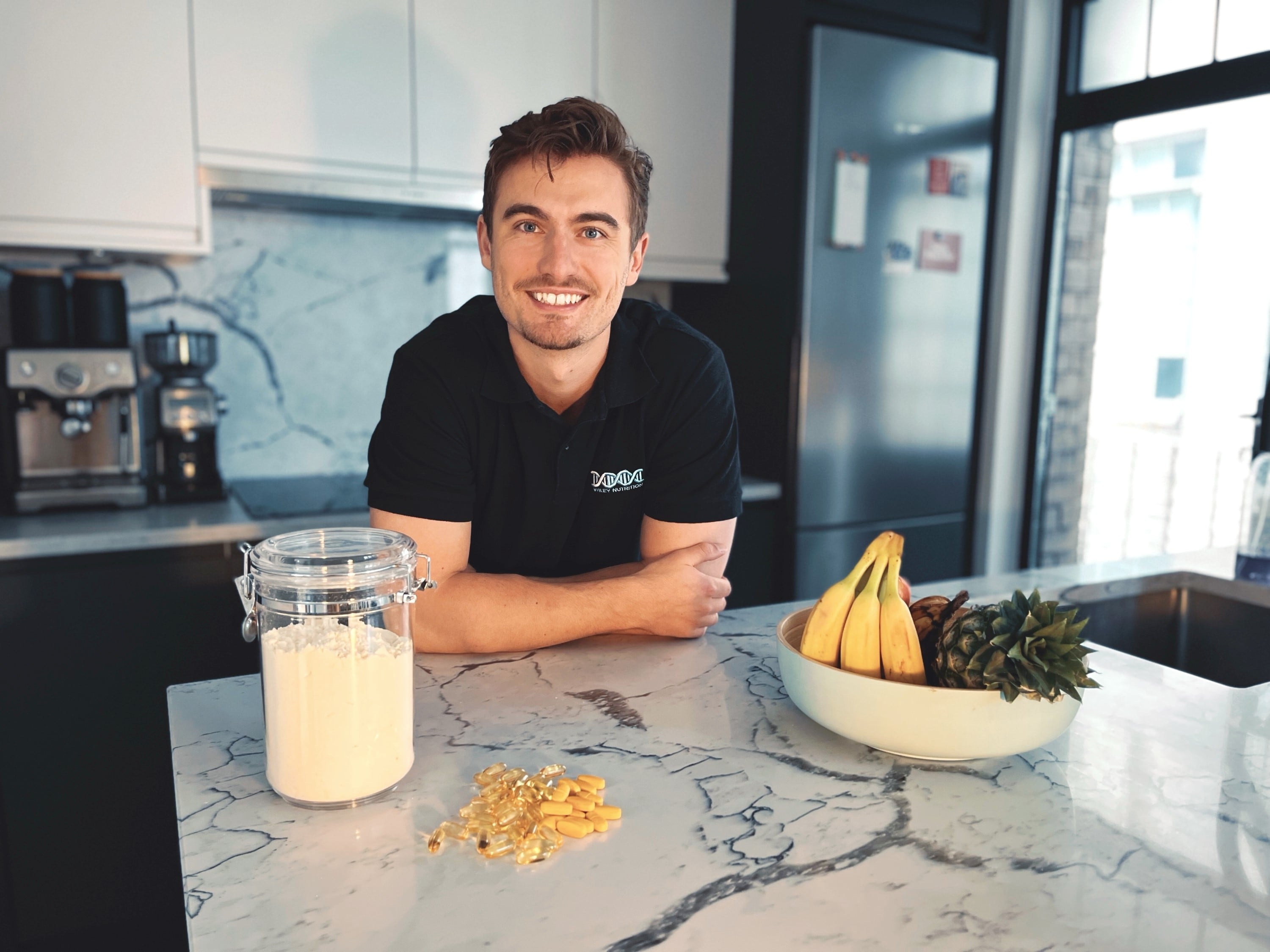Myoform was founded by Theo Wiley and Sacha Attiach and has been building over the past three years.
“The difference between what we do with Myoform [and others in the personalized nutrition space] is threefold,” Wiley told NutraIngredients. “One is from a testing perspective. Off the bat, we use what’s called whole genome sequencing […], we look at 100% of the genome. Customers get insights effectively for life, and it’s the last genetic test that they’ll need to do."
“We then take all of that data and we have an online platform that we built from scratch that analyzes all of that data and spits out a myriad of things, and then the final piece—we have an algorithm system that then develops a completely customized supplement formulation,“ Wiley added. ”We then produce those in-house on an n of one basis, so every single customer gets a completely different formulation based on what they tell us in their sort of questionnaire, but also their genetic risk profile and what are the outcomes they actually want to achieve.”
The company is initially focused on the UK market, where it manufactures its personalized supplements. With plans to expand into the United States next year and tariffs creating difficulties for shipping products across the pond, Myoform does have plans to set up a separate facility stateside.
“Today, we can offer the testing [for U.S. consumers], and from a supplement perspective, the plan is to have that set up by early 2026,” Wiley said.
Myform’s is initially focused primarily on powders to accommodate the ingredient quantities that are needed in for clinical dosage.
What do you learn?
Following the genetic test, the online platform presents a range of result, including a person’s genetic predisposition to deficiency, across vitamins, minerals, micronutrients and macronutrients. The dashboard also looks at physical traits. From a sports performance perspective, this includes muscle mass, endurance response, strength response and power. Tissue specific injury risk is also presented.
“If you’re an athlete—understanding where those risks might lie and being able to mitigate them both through nutrition, but then through also training principles, that’s kind of the intent behind it,” he said.
Myoform’s technology and approach have been validated over 18 months of beta-testing. Wiley admits that this is not a robust clinical trial, but initial data revealed that, over four week intervals, there was an overall 23.5% improvement in performance with no changes to training programs or nutritional approaches other than replacing other supplements with Myoform.
“So, some really promising data, and then across other kind of areas, where it’s strength endurance or straight up endurance, we saw as high as 43.5% improvement in performance across those,” Wiley said, adding that there was also a 9% improvement recorded in a six-minute All Out Run Test.
Future plans
Wiley noted that the challenge with genetics is that it does not necessarily tell someone what is happening today. Myoform already has plans to incorporate wearable data to provide a real time feedback loop for things like sleep, recovery and heart rate variability.
“The primary markets for us will be UK and US,” he said “We’re starting with performance because of the fact that we can see very measurable outcomes, and we want to ensure that the products that we are providing are having a real impact on consumers, rather than just a traditional multivitamin or gummy products.
“For the average consumer, it’s difficult for them to understand why they’re paying 70 bucks for a personalized product or 12 bucks for a non-personalized [supplement], so we want to ensure that consumers are seeing benefits, and we’re focusing on performance first, because we know that people are going to be able to measure, ‘did I improve my bench press over week one and week four?’ and so on.”



